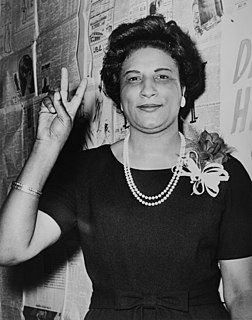A Quote by Quentin S. Crisp
I began researching and writing what I intended as a book-length essay entitled Fascination and Liberation, exploring the question of whether there is a conflict between creativity and the Eastern form of enlightenment. I don't know if I'll ever finish that essay, because I had an experience, after I'd written two or three chapters, in which it seemed to me that my psychic antibodies decisively rejected Buddhism. Interestingly, the rejection felt as if it happened in Zen terms.
Quote Topics
After
Antibodies
Because
Began
Between
Book
Buddhism
Chapters
Conflict
Creativity
Eastern
Enlightenment
Entitled
Essay
Ever
Experience
Exploring
Fascination
Felt
Finish
Form
Had
Happened
Intended
Know
Length
Liberation
Me
Psychic
Question
Rejected
Rejection
Researching
Seemed
Terms
Three
Two
Whether
Which
Writing
Written
Zen
Related Quotes
The book was just something that came along after we played the Super Bowl and I wrote a little essay that went online. Then I had two or three weeks and I said, wow, that essay was pretty good. Maybe I'll try and write some other stuff. Writing about the depression, I just felt - you know, when you write a book like this, you have to open up your life. You have to be willing to do so to a certain degree.
I began as a fiction writer - I had written three novels in my 20s and 30s. But as my work has gravitated towards literary nonfiction, or lyric essay or poetic essay, whatever you want to call it, I'm constantly beating my head against the wall 'cause I'm teaching a genre that's no longer that exciting to me and that I'm no longer practicing.
I discovered that I had, in the past two decades, written a far greater amount in the essay form than I remembered. Certainly I have written enough of it to demonstrate that I harbor no disdain for literary journalism or just plain journalism, under whose sponsorship I have been able to express much that has fascinated me, or alarmed me, or amused me, or otherwise engaged my attention when I was not writing a book.
I had tried writing novels for many years, and they always escaped me. For a long time, I thought, 'It's just not in me to write a novel. It's not something I'm able to do.' It seemed like everything I wrote naturally ended at the bottom of page three. A picture book, three pages; an essay, three pages.
If one writing contributed more than any other to the framework in which this work Sowell's Knowledge and Decisions developed, it would be an essay entitled 'The Use of Knowledge in Society,' published in the American Economic Review of September 1945, and written by F. A. Hayek . . In this plain and apparently simple essay was a deeply penetrating insight into the way societies function and malfunction, and clues as to why they are so often and so profoundly misunderstood.
Essay on Adam" There are five possibilities. One: Adam fell. Two: he was pushed. Three: he jumped. Four: he only looked over the edge, and one look silenced him. Five: nothing worth mentioning happened to Adam. The first, that he fell, is too simple. The fourth, fear, we have tried and found useless. The fifth, nothing happened, is dull. The choice is between: he jumped or was pushed. And the difference between these is only an issue of whether the demons work from the inside out or from the outside in: the one theological question.
Of course it's possible for political essays to be artful. I just want to call into question the dominance of content over form in the history of the essay. I want us to recognize that there's art involved in making this stuff, because we still don't approach the constructed nature of the essay with the same appreciation that we do poetry or fiction.
I had a really bad blushing problem when I was younger. The first time I ever performed was in an English class. I had an essay that I was supposed to write, and, instead of writing an essay, I wrote a song. So, I was playing this song in class, and I literally turned the color of this sweater that I was wearing, completely red. I think it was that feeling of challenging everything in me, my introverted personality. Like, "This is what you have to do. It doesn't matter if you do it wrong, you just have to do it."





























